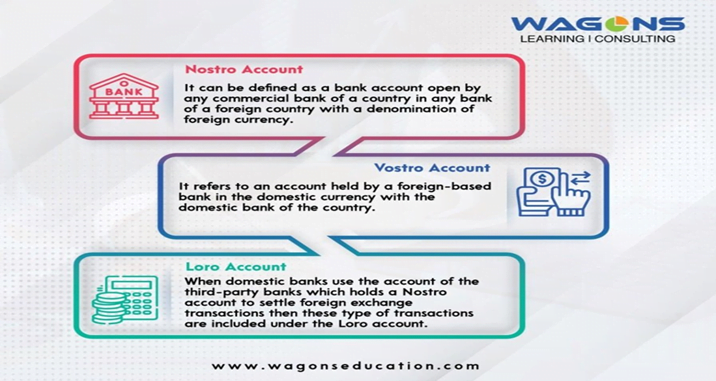Economics
Context: Recently, government of India informed that Russian banks have opened Special Rupee Vostro Accounts (SRVA) with partner banks in India.
About Special Rupee Vostro Accounts (SRVA):
- The SRVA is an additional arrangement to the existing system that uses freely convertible currencies.
- It works as a complimentary system to facilitate transactions that cannot be executed through the existing banking setup.
About Vostro Accounts:
- A Vostro account is an account that domestic banks hold for foreign banks in the former’s domestic currency.
- In this, a foreign bank acts as an agent providing financial services on behalf of a domestic bank.
- It enables domestic banks to provide international banking services to their clients who have global banking needs.
- Domestic banks use Vostro accounts to facilitate transfers, conduct business transactions, accept deposits, and gather documents on behalf of the foreign bank.
Significance:
- The system could reduce the “net demand for foreign exchange, the U.S. dollar in particular, for the settlement of trade flows”
- It will reduce the dependence on foreign currencies.
- It can make the country less vulnerable to external shocks.
- Ensure timely payments.
- This helps domestic banks to gain wider access to foreign financial markets and serve international clients without having to be physically present abroad.
- Vostro accounts are not restricted to banks, they can be used by other entities such as insurance companies and business entities to keep funds with another entity.
- When Vostro accounts are used by corresponding banks, the domestic bank can execute transfers, deposits, and withdrawals on behalf of the corresponding bank.
Functioning :
- The framework entails three important components, namely, invoicing, exchange rate and settlement.
- Invoicing entails that all exports and imports must be denominated and invoiced in INR.
- The exchange rate between the currencies of the trading partner countries would be market-determined.
- The final settlement also takes place in Indian National Rupee (INR).
- Domestic importers are required to make payment in INR into the SRVA account of the correspondent bank against the invoices.
- Domestic exporters are to be paid the export proceeds in INR from the balances in the designated account of the correspondent bank of the partner country.
Legal framework:
- All reporting of cross-border transactions are to be done in accordance with the extant guidelines under the Foreign Exchange Management Act (FEMA), 1999.
Eligibility criteria of banks:
- Banks from partner countries are required to approach an authorised domestic dealer bank for opening the SRVA.
- The domestic bank would then seek approval from the apex banking regulator providing details of the arrangement.
- Domestic banks should ensure that the correspondent bank is not from a country mentioned in the updated Financial Action Task Force (FATF) Public Statement on High Risk & Non-Co-operative jurisdictions.
- Authorised banks can open multiple SRV accounts for different banks from the same country.
- Balances in the account can be repatriated in freely convertible currency and/or currency of the beneficiary partner country depending on the underlying transaction, that is, for which the account was credited.
There are 3 types of accounts : Vostro, Nostro and Loro Accounts

- Vostro accounts -are maintained in the domestic currency.
- Nostro accounts- are maintained in foreign currency.
- A Loro account -is a current account that is maintained by one domestic bank for another domestic bank in the form of a third-party account, unlike nostro and vostro which is bilateral correspondence.
The Foreign Exchange Management Act, 1999 (FEMA):
- It is a civil law dealing with foreign exchange market in India.
- Under it the Central Government can regulate the flow of payments to and from a person situated outside the country.
- Financial transactions concerning foreign securities or exchange cannot be carried out without the approval of FEMA.
- The Act empowers RBI to place restrictions on transactions from capital Account even if it is carried out via an authorized individual.
SOURCE: THE HINDU
Previous year Questions
Q.1) Rapid Financing Instruments” and “Rapid Credit Facilities” are related to the provisions of lending by which of the following: (2022)
- Asian Development Bank
- International Monetary Fund
- United Nations Environment Programme Finance Initiative
- World Bank
Q.2) ‘European Stability Mechanism’, sometimes seen in the news, is an : (2016)
- the agency created by the EU to deal with the impact of millions of refugees arriving from the Middle East
- agency of the EU that provides financial assistance to eurozone countries
- agency of the EU to deal with all the bilateral and multilateral agreements on trade
- agency of the EU to deal with the conflicts arising among the member countries











